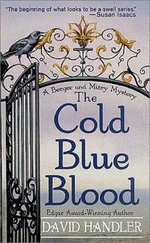And they were the lucky ones: other Aleuts, farther out on the Chain, were dragged from their homes by Japanese soldiers and taken back to Japan, where they spent the remainder of the war. Close to half died there.
That was rapture; that was when governments presumed to play God and did so with requisite carelessness. Anything in Alaska could be done if required by the war (or whim, the two terms so close, it seems now). Homes, buildings, towns, and airports were taken up and dropped elsewhere.
That was when the end of the world was nigh, not now as penny-ante preachers would have us believe. I believed then, I most definitely did. Thunderous hellfire. The dead blanketing the earth. Plague and pestilence: upon our return to Anchorage, Gurley and I waited anxiously for test results-his own, mine, and of the two fleas Gurley had “captured.”
Those were the days of Armageddon, when one horror slipped into the next, from the threat of your skin erupting with pox to that of a spy approaching from behind and slipping a wire around your throat.
It was this last threat Gurley and I returned to. As nervous as we were about finding ourselves on the front lines of the germ war, a small part of us-a very small part-had also been pleased that we would be back in the spotlight.
But our hopes were dashed, as the Army unfailingly would do. Gurley was greeted with new bulletins announcing that the germ warfare threat was now believed to be traveling our way by both balloon and human means: saboteurs might even now be in our midst, ready to release animals and insects ridden with disease, or perhaps, in the manner of kamikaze pilots, they had been infected themselves, their only goal to ensure they did not die alone.
Alaska was thought to be a likely point of entry, its vastness a perfect cloak for the solitary spy. It sounds mad now, doesn’t it? But there we were, with those bulletins, with word of captured Japanese documents and messages describing one-and two-man submarines, paratroopers dropped from impossible altitudes, frogmen leaping from the surf.
And, of course, those balloons: that soldiers (however small) would someday arrive in them seemed inevitable. We had done experiments: the balloons would have to be larger; the soldier aboard would need additional gear, but they had the technology, rudimentary as it was. They had the balloons. They had men willing to pledge their lives. It was absolutely possible, as possible as shipping fleas.
Alaska was not unfamiliar territory to the Japanese. Even before the landings on Attu and Kiska, even before the war, there had been reports from Alaska ’s southwestern coast of repeated visits by Japanese “fishermen” who seemed more interested in touring and photographing than fishing. Were Japanese spies here now? No one would say.
But I discovered a second, trusted source who could.
LOVERS. I SAY Lily and I were lovers because we had secrets, but other men who knew her wore the title more accurately than I. Gurley for one. She did not speak as freely of him as he did of her. But I knew, through his innuendos and her silences, that he still visited. In the hopes of avoiding him, and perhaps disrupting their plans, I always tried to get Lily out of her “office” whenever I went to see her. She liked leaving less and less, though, what with the recent rapture of those other Asiatic faces from the sidewalks.
Gurley and I entered a quiet period when we returned from Kirby a kind of self-imposed quarantine as winter devolved into a wet and muddy spring.
Then the results arrived, and relief and disappointment with them: Gurley had killed two all-American fruit flies. They were clear; no sign of plague. But still we kept to Anchorage. I felt fine-I knew I was fine, with a certainty that seems altogether foreign to me now. But Gurley was convinced they’d made a mistake with the tests-he worked his way through a variety of symptoms, and produced a fairly convincing rash on his torso. He sulked in the office and waited for calls from the hospital.
The balloons weren’t venturing out much either, it seemed. We’d had no new reports of sightings or groundings. This was evidence, Gurley said (and I agreed), that the Japanese were pausing while they changed over to the new, germ-carrying balloons. The new wave would arrive soon.
Until then, we would wait. And while we did, I wandered. Downtown, as often as I could, where I cultivated a growing hatred of Gurley.
Now, consider the sailors Lily and I had battled in her office. I hadn’t seen or heard them since we’d left the two bleeding on the second floor of the Starhope. But Gurley I saw every day. And the more I got to know him, and the more I got to know Lily, the more I despised my captain. In a way, I was glad of his connection to Lily; it made his iniquity total and freed me from worrying that I was overlooking some part of him that was worthy of respect or charity.
As the object of my fascination, as the only friend I had in Alaska, Lily was beyond reproach, but as time wore on, her relationship with Gurley wore on me. I became increasingly indignant. Sometimes my thoughts restricted their wandering to the moral high ground-I had defended her against those evil sailors; surely I should defend her against Gurley as well.
Other times, I wandered lower.
I teased her, or rather, I was past the point of teasing; I taunted. I wanted to know her as these other men had, but she showed little interest, and I, less courage. In the meantime, I derived what bitter enjoyment I could from making her feel bad about her “relationships,” even though I could see she loathed her employment as much as I did. She no longer talked of leaving town, though I knew she still wanted to. I almost wanted her to, as well. I knew I would ache at the loss, but I’d still draw some pleasure knowing she was out of Gurley’s arms.
“Your boyfriend’s been in a bad mood recently,” I said one afternoon. Gurley had been even more insufferable than usual, his hypochondria, theatricality, and temper combining demonically. I slid down to the floor in her darkened office, having arrived with sandwiches in the wake of the night’s last customer. The sandwiches, always stale bread and cheese, always wrapped awkwardly in wax paper, had become a tradition.
She cursed at me, but without much spark, and gestured toward the door. “Definitely not my boyfriend,” she said. She took a giant bite of the sandwich I’d given her and sank back, relieved. “This is my boyfriend,” she said, patting the sandwich and closing her eyes.
“No, your real boyfriend,” I said. After a minute, she opened her eyes and studied me. It was because of the way she looked, on this occasion and previous ones, that I assumed Gurley was, in fact, that “real” man: “Good old Captain Gurley,” I said. I smiled, though any humor, even dark humor, had faded by now.
“You’re jealous of Gurley?” she asked.
I thought of the ring, the jeweler, the clipped ad that had disappeared with the suspect fleas. Instead, I said, “Of him and every other guy who comes in here, not even with sandwiches, and gets more- out of you-than I ever—”
“Gets what?” she asked.
“I don’t know,” I said, and then added, too quickly: “I’m guessing some men up here feel like they spend enough time with their own palms. Maybe there’s other stuff of theirs they want to get read. Maybe—”
But I didn’t finish. Lily stood—
No, I need to describe this carefully. Lily, standing there, me on the floor, the two of us lit only by the lights from the street, until she went and pulled the blackout shade. Then it was completely dark, only breathing and steps.
Click. The light went on. And while I blinked, she stepped around in front of me and stopped, just out of reach. It’s inappropriate for me to say what her face looked like then, because it was a private thing, a horrible thing, a mix of fear and hate; it was her true face, the one she wore beneath whatever smile she presented to the men who visited her.
Читать дальше












